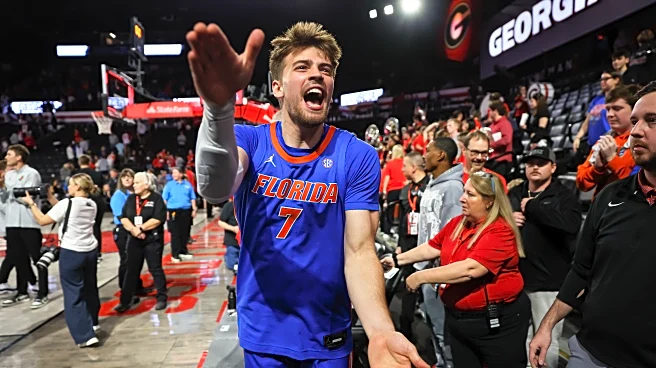What's Happening?
The Water Tank Bar & Grill in Austin is facing a lawsuit from ASCAP, a performing rights organization, for failing to obtain a license to perform musical works. ASCAP claims the venue has consistently
performed music without permission, despite repeated offers to obtain a license over the past three years. The Water Tank, which hosts karaoke and live music nights, denies receiving any legal filings and expresses commitment to supporting local music. ASCAP licenses allow venues to legally play music and compensate creators fairly. Licensing costs vary based on performance type and venue capacity, with annual rates adjusted for revenue.
Why It's Important?
This lawsuit underscores the importance of licensing in the music industry, ensuring that songwriters and artists are compensated for their work. ASCAP's actions highlight the challenges faced by venues in complying with licensing requirements and the potential financial implications of non-compliance. The case also emphasizes the role of performing rights organizations in protecting creators' rights and distributing royalties, which are often a primary income source for songwriters. As the music industry navigates the complexities of licensing and performance rights, this case may influence how venues approach music licensing and artist compensation.
What's Next?
The lawsuit against The Water Tank may lead to a settlement, as ASCAP typically prefers resolving such matters outside of court. The outcome could set a precedent for other venues facing similar issues, encouraging compliance with licensing requirements. ASCAP's monitoring of non-licensed venues may intensify, potentially leading to more lawsuits if venues fail to obtain licenses. The case may also prompt discussions within the music industry about the balance between supporting local music scenes and ensuring fair compensation for creators.
Beyond the Headlines
The legal action against The Water Tank highlights broader issues in the music industry, such as the impact of AI developments on creators' rights and the evolving landscape of music consumption. It raises ethical questions about the responsibility of venues to support artists while adhering to legal requirements. Additionally, the case may influence public perception of performing rights organizations and their role in the industry, potentially affecting how venues and artists navigate licensing agreements in the future.











